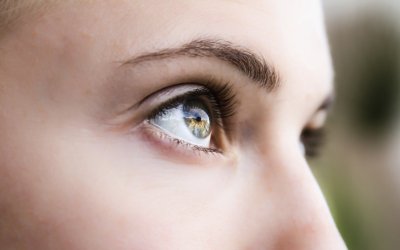Lutein is a carotenoid vitamin which is related to beta-carotene and vitamin A. Many have acclaimed it to be “the eye vitamin” as it is used widely in curing eye diseases. It is also used to cure retinitis pigmentosa, cataracts, colon cancer, type 2 diabetes, breast cancer, and heart diseases. Many multivitamin tablets contain lutein, however in very small a quantity that is 0.25 mg per tablet.
It is one of the major carotenoid, which is found as a color pigment in the human eye. It functions as a light filter and protects eye tissues from sunlight damage.
Why is Lutein good for Eye Health?

The macula region in the retina is responsible for central vision. It is also the area which is most sensitive to blue light, a part of the visible light spectrum that along with ultraviolet rays, can damage our eyes. Lutein helps in protecting this macula region.
Benefits of Lutein:
Powerful Antioxidants:
Lutein also acts as an antioxidant that protects your body from unstable molecules from free radicals. These free radicals can damage the cells in the body and lead to the occurrence of heart diseases, cancer, Alzheimer’s and type-2 diabetes.
Protects the Skin:
The antioxidants in Lutein have the power to protect our skin from the damage of sunlight’s ultraviolet rays. A research study has proved that people receiving or taking Lutein have significantly improved skin tone compared to the other group.
Age-Related Macular Degeneration (AMD):
According to a study done in 2004, for about 12 months, 90 people with the age-related macular disease have been taking lutein in different ways and there was a significant improvement in visual function.
What is Dosage that has to be consumed by Lutein?
For reduction of cataracts, 6 mg of Lutein per day either through diet or supplements has to be consumed.
For AMD, 10 mg of Lutein per day is advised by researchers.
The Healthy Foods that contain Lutein:
According to the U.S Department of Agriculture, dark green leafy vegetables and yellow vegetables contain the highest amount of Lutein in them.
- Kale
- Winter Squash
- Collards
- Yellow Sweet Corn
- Spinach
- Swiss Chard
- Green Peas
- Arugula
- Brussels Sprouts
- Broccoli Rabe
- Pumpkin
- Egg Yolks
- Sweet Potatoes
- Carrots
- Asparagus
- Summer Squash
- Lettuce
- Pistachios
What are the Side Effects of Lutein?
None of the researchers ever said that Lutein has side effects. However, it has to be consumed in the required amounts as prescribed.



Comments (No)